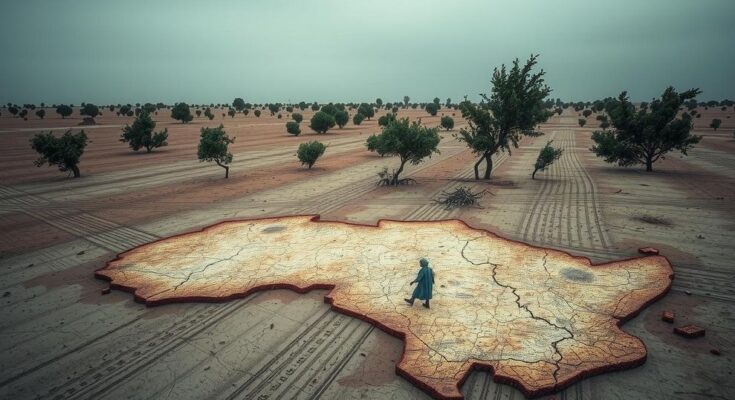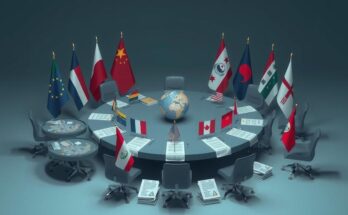The M23 rebel group has violently taken control of cities in eastern DR Congo, claiming to protect ethnic Tutsis who are allegedly persecuted. This situation is compounded by historical discrimination against Tutsis, who face violence despite some constitutional recognition. While governmental efforts to address discrimination exist, ethnic tensions persist, causing minority communities to feel threatened in their own country.
The M23 rebel group is causing chaos in eastern Democratic Republic of Congo (DRC), having taken control of the region’s largest cities amid a violent uprising that has displaced hundreds of thousands. A key aspect of the uprising is the claim that ethnic Tutsis in DRC are facing persecution. However, this issue is complex and raises questions about national identity and belonging among Congolese citizens.
Human Rights organizations and global authorities criticize the M23 for committing atrocities under the guise of protecting Tutsis. The United Nations (UN) and the United States (US) have imposed sanctions on M23 leaders due to allegations of war crimes, including sexual violence and civilian killings. Furthermore, analysts suggest that the motives behind the rebellion involve the exploitation of eastern DRC’s mineral wealth rather than genuine concern for Tutsi safety.
It is estimated that there are hundreds of thousands of Tutsis in DRC, many of whom do not endorse the violence conducted in their name. Nevertheless, reports from the UN and various experts have documented long-standing discrimination against Congolese Tutsis and the Banyamulenge, a Tutsi subgroup. This discrimination manifests as ethnic violence, workplace bias, and hate speech from political figures who link Tutsis to Rwanda, causing dire consequences for Tutsi identity in DRC.
The historical context reveals that Tutsis and their region have seen multiple waves of migration to DRC due to ongoing violence in Rwanda and neighboring areas. The alleged persecution can be traced back to political actions such as the 1981 parliamentary decision that stripped many Tutsis, including Banyamulenge, of their nationality and left them stateless. Such bureaucratic changes enacted a cycle of violence against this community as the nation grappled with its ethnic tensions.
In contemporary times, despite the constitutional acknowledgment of Tutsis as Congolese, deep-seated discrimination persists. Reports indicate that Banyamulenge, in particular, face hostility from neighboring communities and violence against them has increased, especially during M23 uprisings. Even high-ranking individuals from their community are not immune to such persecution and violence, highlighting a concerning trend of ethnic hatred within the Congolese military forces.
The Congolese government has made some attempts to address discrimination against Tutsis; however, officials continue to downplay widespread persecution claims. President Félix Tshisekedi indicated his commitment against anti-Banyamulenge sentiments, asserting they provide pretexts for foreign interventions. Nevertheless, sentiments among marginalized groups indicate a belief in persistent discrimination, as espoused by activists like Muragwa Cheez Bienvenue, who emphasizes his community’s long-standing presence in DRC and experiences of prejudice.
The situation of Tutsis in the Democratic Republic of Congo exemplifies the intricate relationships among ethnicity, national identity, and conflict. The ongoing violence from the M23 and its historical roots in discrimination reveal the vulnerability of the Tutsi population. Although some acknowledgment has been made by the government regarding discrimination, ethnic tensions continue to manifest in violence and societal divides, highlighting the need for a sincere dialogue on inclusivity in DRC.
Original Source: www.bbc.com




